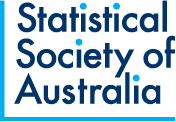Abstract Submission
Abstract submission for ISCB ASC 2018 is now closed
The ISCB ASC 2018 Scientific Program Committee invites you to submit abstracts for consideration into the scientific program. Abstracts should report methodological research in statistics or biostatistics, or innovative applications illustrating important issues for statistical practice. The following presentation types are available for selection upon submission:
Oral Presentations
- Oral Presentation (15 minute time slot, including a 12 minute presentation and 3 minutes for discussion)
Poster Presentations
- Hardcopy Poster (available on display in Exhibition & Catering area)
- The Poster Presentations will be given special prominence including an optional competition where entrants will deliver a 3-minute presentation. The top 3 students and 3 non-students will present in the main auditorium with a live vote to select the best poster presentation from each group.
Key Dates
| Abstract Submission opens | 15 November 2017 |
| Abstract Submission Deadline | Now closed |
| Author Notifications will be sent out | 18 May 2018 |
| Author Registration Deadline | 31 May 2018 |
Important Information Regarding Abstract Submission
- Please read through the following General Policies and Requirements and Abstract Format & Layout Guidelines before preparing your abstract.
- If you wish to be considered for an award, please click here for further information on eligibility and the application process.
- All authors are required to create an author account before submitting their abstract.
- Submit your abstract using the online abstract submission portal by clicking the “submit now” button at the bottom of this page.
- Notifications of acceptances will be sent via email to the submitting authors by 18 May 2018.
- Successful authors will be required to register for the Conference prior to 31 May 2018.
General Policies and Requirements
Compliance to the specifications is imperative – any abstract that does not comply with these specifications will not be accepted for review and will be returned to you by the Conference Managers for resubmission.
Abstract Content
The purpose of the abstract is to define the precise subject of the presentation to an audience. The abstract should state the problem being addressed, the purpose of the paper, basic procedures/methods, main findings and principle conclusions in 2 – 3 paragraphs. References should be minimally cited in the body of the abstract.
Title
The abstract title should be short, informative and contain the major key words.
Contact Author
Please list the contact author within the text box as indicated. The contact author may be different to the presenting author.
Authors
Please list ALL authors and affiliations within the text boxes as indicated on the abstract submission form.
Requirements for the Submission of Abstracts
- All abstracts must contain original work that has no prior ownership or copyright restrictions. Abstracts may be from a range of categories, including original research, case studies, and insight or review articles.
- All abstracts must be prepared according to the guidelines provided.
- We recommend that the presenting author submits the abstract.
- The presenter will be required to register and pay for the Conference to ensure their abstract(s) are included in the final program and Conference Proceedings – deadline for author registration is 31 May 2018.
- Do not resubmit an abstract for any reason other than a notified submission error. If you do not receive a submission confirmation email stating your abstract was successfully uploaded, .
- It is the responsibility of the presenting author to ensure that the abstract is submitted correctly. After an author has submitted their abstract they must check their submission, which will be converted to a PDF file, to ensure the abstract has been formatted correctly.
- All submissions must be completed electronically via the online abstract submission portal. If you are unable to submit in this manner, please contact the Conference Managers via email or phone .
- It is possible to submit multiple abstracts as the presenting author, but at most one of these abstracts will be allocated an oral presentation. Those submitting an abstract for oral presentation at the ECR day, may also submit an abstract for oral presentation at the main Conference.
- Splitting of a body of work into multiple abstracts is discouraged and consolidation into one abstract is preferred.
- If accepted, abstracts will be available online. They will also be available in the Conference app.
Presentations
- Oral Presentations – It is a requirement of all presenters that a biography (maximum of 150 words) is supplied at the time of abstract submission. This is for use by the Chair in each session to introduce the presenter.
- Poster Presentations – Instructions for the preparation of hardcopy posters will be sent to authors upon notification of the abstracts acceptance.
Abstract Format and Layout Guidelines
All abstracts must be prepared according to the Format and Layout Guidelines provided below. Abstracts will only be accepted if submitted using these guidelines:
- Up to 10 co-authors per submission.
- Section headings are not required in the abstract, however, if you do wish to use sections, we suggest you use the following headings: “Background”, “Methods”, “Results” and “Conclusion”
- Abstract body must not exceed 350 words.
- Abstract should include only the abstract body – not the title, authors or affiliations. Titles, authors and affiliations will automatically appear on the final abstract document based on the details entered into the relevant sections in the abstract submission portal.
- Tables and/or graphics may not be included in the abstract body, however equations may be included in the abstract body. All formatting is preserved (italics, bold, superscripting, subscripting, underlining) and symbol characters (i.e. ± , µ, ß) may be used. In order to include equations within your abstract please write these in a word document and copy and paste them into the abstract text box.
- Abstracts must be free of typographical and grammatical errors.
- Abbreviations may be used and should be given in brackets after the first full use of the word/phrase. Abbreviations may be used in the title, provided the definition is outlined in the body of the abstract.
- You will be asked to provide a short biography (up to 150 words) with your submission.
- You will be asked for your consent to approve or disapprove allowing your work to be published and / or recorded.
- You will be asked to nominate a theme. Please refer to the list of themes available at the end of this page.
- You will be asked if you would like to be considered for an award. Click here to learn more about the awards available.
- You will also be asked whether, if allocated a poster you would like your poster to be considered for the “Poster Pitch Prize” which will involve a 3 minute presentation of the research described in your poster.
Abstract Themes
Authors will be required to select one of the following themes for their abstract:
- Bayesian theory and computation
- Causal inference
- Design and analysis of clinical trials
- Data linkage & health services research
- Econometrics
- Environmental statistics
- Experimental design
- Longitudinal analysis
- Machine learning / deep learning
- Mathematical statistics
- Meta-analysis
- Missing and incomplete data
- Modern analytics (Big Data etc)
- Nonparametric & semiparametric methods
- Probability and stochastic processes
- Spatial/spatio-temporal & network models
- Statistical education
- Statistical genomics and related fields
- Statistical methods in pharmacoepidemiology
- Statistical methods for precision medicine
- Statistical methods in epidemiology
- Statistical modelling
- Statistics and reproducibility of science
- Statistics for functional and high-dimensional data
- Survey methods & official statistics
- Time-to-event analysis
- Time series and forecasting
- Other biostatistics
- Other


